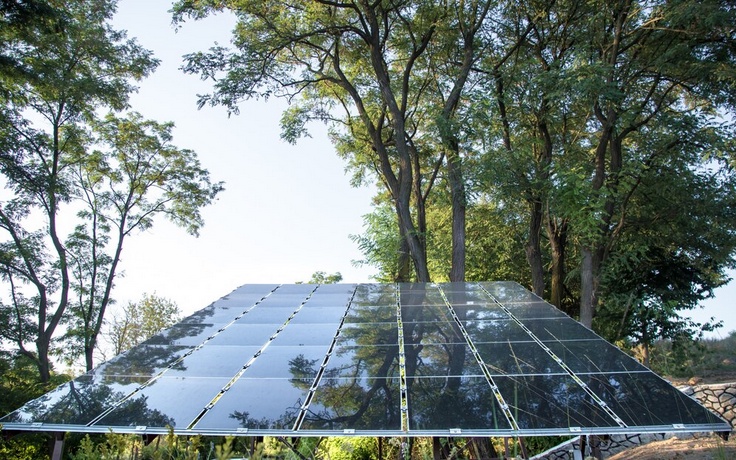In the global pursuit of renewable energy, solar panels have become a cornerstone of sustainable power generation. However, as these panels reach the end of their operational life, the question of their disposal arises. Sustainable solar panel disposal is a critical consideration in maintaining the environmental benefits of renewable energy. This article explores the importance of eco-friendly solar panel waste disposal, the challenges it presents, and provides a guide to responsible end-of-life practices.
The Rise of Solar Energy and Disposal Concerns
As the world increasingly turns to solar energy as a clean and renewable power source, the number of solar panels in operation has surged. While solar panels contribute significantly to reducing carbon emissions during their operational phase, the environmental impact of their disposal cannot be ignored. Traditional disposal methods, such as sending solar panels to landfills, present risks of soil and water contamination due to the presence of hazardous materials within the panels.
The Environmental Impact of Solar Panel Components
Understanding the environmental impact of solar panels requires a closer look at their components. Photovoltaic panels typically consist of glass, aluminum, and semiconductor materials like silicon. While these materials are not inherently harmful, certain types of solar panels, such as thin-film panels, may contain hazardous substances like cadmium and tellurium.
To ensure a sustainable future for solar energy, it is crucial to adopt disposal practices that minimize environmental harm. This involves not only addressing the potential hazards within the panels but also considering the broader impact of electronic waste (e-waste) on the environment.
Challenges in Sustainable Solar Panel Disposal
Several challenges complicate the process of achieving sustainable solar panel disposal:
-
Diversity of Panel Types: Solar panels come in various types, each with unique compositions. Crystalline silicon panels, thin-film panels, and other emerging technologies require different recycling methods. This diversity poses a challenge in establishing standardized disposal practices.
-
Efficiency of Recycling Processes: While recycling can recover valuable materials from solar panels, the efficiency of current recycling processes varies. For instance, recycling crystalline silicon panels is more established than recycling thin-film panels, and advancements are needed to improve overall efficiency.
-
Volume of E-Waste: The increasing adoption of solar energy translates to a growing volume of solar panel waste. Establishing infrastructure capable of handling this volume in an environmentally friendly manner is a significant logistical challenge.
-
Regulatory Frameworks: The absence of standardized regulations for solar panel disposal hinders the development of cohesive and universally applicable practices. Clear guidelines and regulations are essential to ensure responsible disposal on a global scale.
Guide to Sustainable Solar Panel Disposal
To address these challenges and ensure the sustainable disposal of solar panels, a comprehensive guide is essential:
-
Inventory and Assessment:
- Begin with a thorough inventory of the solar panels, documenting their type, age, and condition.
- Assess the feasibility of refurbishing or repurposing panels that may still have useful life.
-
Reuse and Repurposing:
- Explore opportunities for reusing or repurposing solar panels. Panels that no longer meet efficiency standards for energy generation may find applications in non-energy-related fields.
-
Recycling:
- Prioritize recycling as the primary disposal method. Different types of panels require specific recycling methods. Collaborate with specialized recycling facilities equipped to handle various panel types.
- Extract valuable materials, such as silicon and metals, from recycled panels for use in the manufacturing of new panels or other products.
-
Hazardous Material Management:
- Implement proper management of hazardous materials present in some types of solar panels. Develop processes for safely handling and disposing of substances like cadmium and tellurium.
-
Research and Development:
- Support research and development initiatives focused on improving the efficiency of solar panel recycling processes. Innovations in recycling technologies can contribute to more sustainable disposal practices.
-
Public Awareness:
- Educate the public, including solar panel owners and installers, on the importance of responsible disposal. Foster awareness about the environmental impact of improper disposal and the benefits of recycling.
-
Advocacy for Regulation:
- Advocate for the development and implementation of standardized regulations for solar panel disposal. Work with industry stakeholders, governmental bodies, and environmental organizations to establish clear guidelines that promote responsible practices.
Conclusion
In conclusion, the eco-friendly farewell of solar panels is a crucial component of ensuring the sustainability of renewable energy. As the world transitions towards greater reliance on solar power, responsible disposal practices become imperative to mitigate the environmental impact of end-of-life panels. Challenges in achieving sustainable disposal, including diverse panel types, efficiency of recycling processes, and regulatory frameworks, must be addressed through collaborative efforts.
By following a comprehensive guide that includes inventory and assessment, reuse and repurposing, recycling, hazardous material management, research and development, public awareness, and advocacy for regulation, the solar industry can pave the way for a future where the environmental benefits of solar energy are maximized from production to disposal. Sustainable solar panel disposal is not only a necessity for protecting the environment but also a responsibility in ensuring that the transition to renewable energy remains truly green and sustainable.


No comments yet